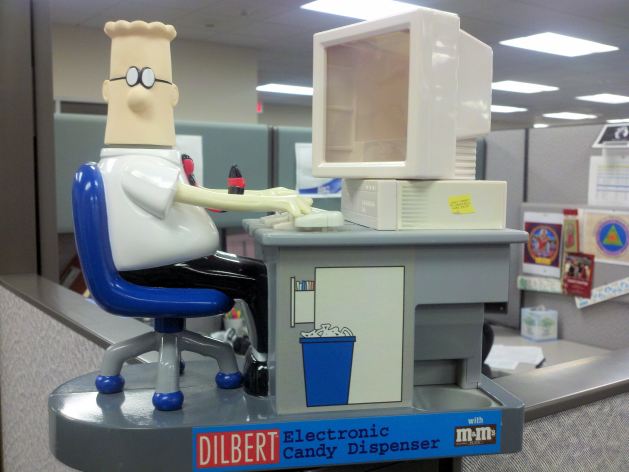 If you haven’t seen it yet, I urge you to read Daniel Golden’s ProPublica feature about working in Western Massachusetts at the Springfield Daily News in the early years of his career. ProPublica allows republication, so we posted it Tuesday at What Works. Golden, who later worked at The Boston Globe and The Wall Street Journal, is now a Boston-based reporter and editor for ProPublica, which is a well-known investigative news project.
If you haven’t seen it yet, I urge you to read Daniel Golden’s ProPublica feature about working in Western Massachusetts at the Springfield Daily News in the early years of his career. ProPublica allows republication, so we posted it Tuesday at What Works. Golden, who later worked at The Boston Globe and The Wall Street Journal, is now a Boston-based reporter and editor for ProPublica, which is a well-known investigative news project.
What few people know is that the Springfield Republican, as the paper was once known (and is again), at one time was considered the finest newspaper in the region and better than its moribund brethren in Boston. Louis M. Lyons, in his 1971 authorized history of The Boston Globe, “Newspaper Story,” writes that Republican publisher Samuel Bowles was brought in to oversee the revitalization of the Boston Traveller in 1857, but that those efforts came to naught. Lyons explains:
[T]he project was undercapitalized, and Bowles’s thorny independence did not mix with Boston banking. In four months he returned to Springfield to make his provincial paper the most distinguished journal in New England. The Traveller slid back into being just another struggling Boston newspaper.
In 1905, the Massachusetts legislature considered a bill to require that the makers of patent medicines list their ingredients. The newspapers of that day gave the bill no coverage, Lyons writes, because they were highly dependent on advertising from all kinds of charlatans selling quack cures. Nationally, the patent medicine makers bought $40 million in advertising every year, and Massachusetts papers were threatened with the cancellation of those ads if the bill were to pass. Not surprisingly, the legislation went down to defeat, with only one paper in the state covered the issue: the Springfield Republican.
When Golden was working in Springfield, the city was served by the afternoon Daily News and the Morning Union, both of which were eventually acquired by the Newhouse chain. Eventually they were merged into one paper. Golden writes that the paper was eventually renamed The Republican, but it struck me as odd that the name had been lost in the first place. According to this Wikipedia article, the Sunday paper had retained the Republican name — which goes back to the paper’s Abolitionist origins — and the entire enterprise was renamed The Republican in 2003.
As Golden notes, The Republican — still a Newhouse paper — has shrunk considerably over the past two generations. But it has a lively and expanding website, MassLive, that covers statewide news and has been expanding over the past year.






Happy news breaks out at Media Nation
By Dan Kennedy
On January 28, 2015
In Media
Tighter editing standards at Boston.com, improved online comments at the Boston Herald and well-deserved recognition for some first-rate political reporters. There’s so much good news on the local media front on this day-after-the-blizzard morning that it’s hard to know where to begin.
• Boston.com strives for civility. After a miserable stretch in which it falsely accused a Harvard Business School professor (and, gulp, lawyer) of sending a racist email to one of the owners of a Chinese restaurant and then mocked House Speaker John Boehner’s alleged drinking problem following an assassination threat, the folks at Boston.com sound determined to get it right.
In an interview with Benjamin Mullin at Poynter.org, Boston.com general manager Corey Gottlieb says he’s beefed up copy-editing and tightened standards in response to the two incidents. He tells Mullin:
The worst thing the Boston Globe-affiliated site could do is chase clicks. December turned out to be a boffo month for Boston.com, driven by its reporting on the Harvard professor’s harassment of the Chinese restaurant over a $4 overcharge — a righteous hit before it went off the rails. (T-shirts were involved, too.) According to Compete.com, Boston.com received nearly 3.7 million unique visits in December, way up from November’s 2.8 million. Compete’s numbers aren’t perfect by any means, but it’s safe to say Boston.com’s numbers were up a lot.
Yet quality matters. And according to Compete, BostonGlobe.com actually attracted more traffic than its free cousin in December, receiving more than 3.8 million unique visits — even though you have to pay a digital subscription fee to receive full access to the site (granted, free social sharing at BostonGlobe.com is pretty generous these days).
No doubt Gottlieb and company are going to stick with their plan to build a buzzy site with lots of viral content (here’s my alternative idea). But I’m glad to see that they understand what’s gone wrong and that they’re determined to do something about it.
One of Boston.com’s biggest problems is that it’s been flying without an editor (except for a few weeks last fall) since its relaunch last spring. That should be rectified as soon as possible.
• The Herald embraces Facebook. Online newspaper comments in general can make you despair for humanity. Over the years the Herald’s have been particularly loathsome. So kudos to publisher Pat Purcell and editor Joe Sciacca for switching to a Facebook-based commenting system.
Facebook isn’t perfect. Certainly there are issues with a news organization turning over its community platform to a giant corporation with its own agenda and priorities. But people are generally more civil and constructive when they’re on Facebook, in large measure because Facebook requires real names — and most people comply.
Check out the comments beneath Howie Carr’s ridiculous column on climate change today. Not bad at all. Only one of the first eight is pseudonymous. And if they’re not all exactly civil, they are less toxic than I’m accustomed to seeing at BostonHerald.com.
Can a real-names policy at BostonGlobe.com be far behind?
• Massachusetts’ best political reporters. Chris Cillizza, who runs a political blog for The Washington Post called The Fix, has named nine Massachusetts political reporters as among the best in the country. (Disclosure: The list was based in part on a reader poll, and I voted for friend of Media Nation Jon Keller, who’s among the winners — but every one of these is worthy.)
It’s especially nice to see a couple of reporters outside the Greater Boston orbit win recognition — Jim Hand of Attleboro’s Sun Chronicle and Shira Schoenberg of The Republican in Springfield. Congratulations to all.